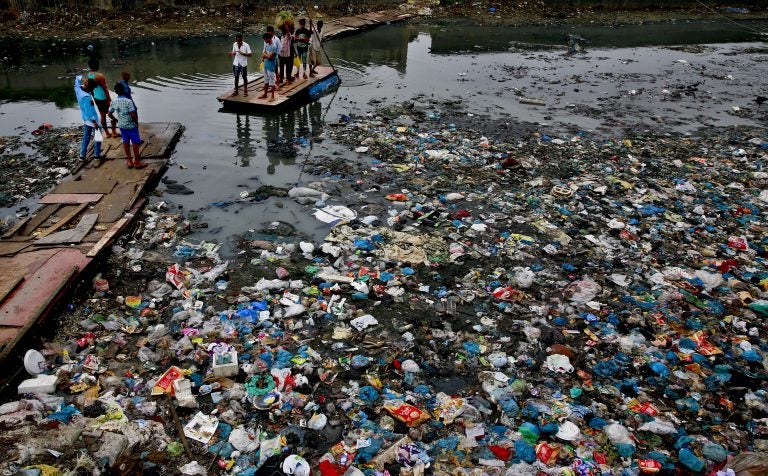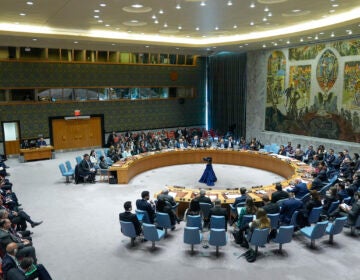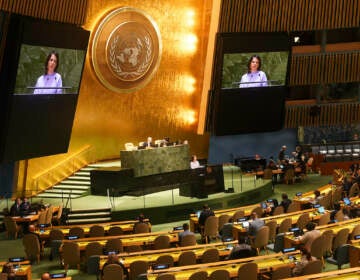UN: Plastic waste pact approved with U.S. among few holdouts
Almost every country in the world has agreed on legally binding framework for reducing plastic waste, with the U.S. a notable exception, United Nations officials said Friday.

In this Sunday, Oct. 2, 2016 file photo, a man guides a raft through a polluted canal littered with plastic bags and other garbage in Mumbai, India. United Nations officials say nearly all of the world's countries have agreed on a deal to better manage plastic waste, with the United States a notable exception. A "legally binding framework" that affects thousands of types of plastic waste emerged Friday, May 10, 2019 after a two-week meeting of U.N.-backed conventions on plastic waste and toxic chemicals. (Rafiq Maqbool/AP Photo, file)
Almost every country in the world has agreed on a legally binding framework for reducing polluting plastic waste, with the United States a notable exception, United Nations environmental officials said Friday.
An agreement on tracking thousands of types of plastic waste emerged at the end of a two-week meeting of U.N.-backed conventions on plastic waste and toxic, hazardous chemicals. Discarded plastic clutters pristine land, floats in huge masses in oceans and entangles wildlife, sometimes with deadly results.
Rolph Payet of the United Nations Environment Program said the “historic” agreement linked to the 186-country, U.N.-supported Basel Convention means countries will have to monitor and track movements of plastic waste outside their borders.
“It’s sending a very strong political signal to the rest of the world — to the private sector, to the consumer market — that we need to do something,” Payet said. “Countries have decided to do something which will translate into real action on the ground.”
The deal affects products used in a broad array of industries, such as health care, technology, aerospace, fashion, and food and beverages.
Countries will have to figure out their own ways of adhering to the accord, Payet said. Even the few non-signatory countries, like the United States, could be impacted when they ship plastic waste to countries that are on board.
Payet credited Norway for leading the initiative, which first was presented in September. The time from then to approval was a blistering pace of change by traditional U.N. standards.
The framework “is historic in the sense that it is legally binding,” Payet said. “They (the countries) have managed to use an existing international instrument to put in place those measures.”
The agreement is likely to lead to customs agents being on the lookout for electronic or other types of potentially hazardous waste more than before.
“There is going to be a transparent and traceable system for export and import of plastic waste,” Payet said.
WHYY is your source for fact-based, in-depth journalism and information. As a nonprofit organization, we rely on financial support from readers like you. Please give today.




